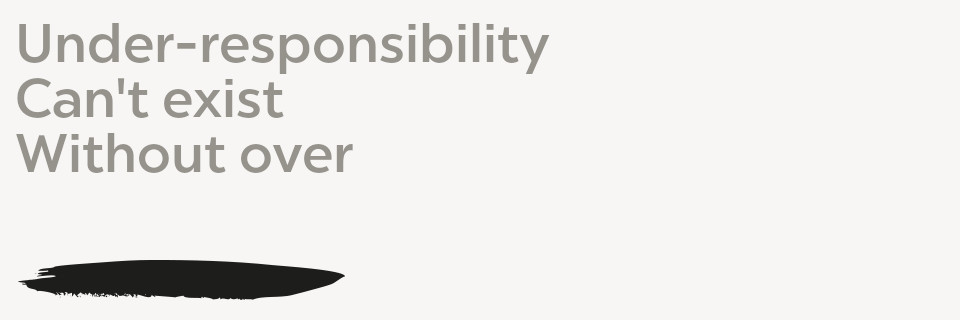Is there such a thing as being too nice?
I once coached five members of an executive team in an online retail business. The CEO complained of “communication issues” and some people not pulling their weight. Three of the members were co-founders of the company and long-time friends. To sit in a room with them, you wouldn’t know they represented an organizational hierarchy. They were relaxed, casual, and it was clear they put getting along above everything else.
You might think that’s a good thing, but it’s not.
Over time, four of the members independently confided in me that the CEO sometimes scared them. He became visibly frustrated when people disagreed with him, although he usually didn’t say so. For brief moments he might get snappy, and then quickly reel it in. He told his people that he wanted to hear their thoughts, and on a conscious level, he surely did. And on a conscious level, the rest of the team really wanted to be honest with him, but when things felt risky, they withheld.
When I spoke to the CEO, he complained that his people weren’t “stepping up,” and when I spoke to everyone else, they said the CEO wouldn’t listen. No one would be courageously honest with the person who could actually do something to change. Of course, everyone was right, but not looking at the three fingers pointing back at themselves. Someone would have to change first. It went on like this for two years. Imagine the impact on the business.
It wasn’t that long ago that you had to call your boss “Mr.” (and he was almost certainly a man), and he ordered you around as if you were in a lower caste. We’ve come along way from the 1950s, and as happens so often with cultural change, some people took the change too far.
Managers want to be accessible to their employees, so they leave their doors open most of the time and tolerate the constant flow of interruptions. They don’t want to appear “bossy,” so they balk at having stern conversations, even when they’re exactly what’s called for. And especially in smaller businesses, they say things like “Our business is like a family” and “I consider my co-workers friends.” It’s a lovely idea, but more and more people are realizing that it doesn’t work.
The Japanese character for harmony has great wisdom. The top portion is two curved lines coming together like a roof. The idea is that harmony comes when two forces come together and find a mutual third direction. But for that third direction to emerge, the forces must meet in a productive way. Too much pressure is destructive, but too little pressure is stagnative.
Most of us learned that ruling a workplace with an iron fist doesn’t work. It’s what gave us harassment policies and unions. But nowadays we have a different problem: It is the epidemic lack of accountability in the workforce, especially among the younger generations who were raised in this culture. Yes, this issue extends into parenting. For the most part, people manage the way they parent.
It’s not difficult to observe that we learn most from failure. Failure is when the force of the individual and the force of life itself meet, and you’re taken in a new, unexpected direction. Managers constantly tell themselves it’s their job to support their people to succeed, and of course, it is.
It’s also their job to help them fail when that’s what they’re doing. I once knew a CEO of a Fortune 500 company who told me he would let his executives make six-figure mistakes if he knew the lesson would be worth it for them. This is leadership. A manager, just like a parent, knows that people learn best through the right amount of difficulty.
The problem today is that our threshold for difficulty is well below where it’s productive. We learned that a boss screaming at their employee is abusive. Wonderful. But that doesn’t mean we shelter employees from looking squarely at their mistakes. It’s easy to vent frustration at an employee. It’s also easy to drop friendly hints for months that don’t make a difference. But to clearly state the issue in a calm, positive but unyielding way — this is a challenge.
Why do you think the CEO became visibly upset with his people? What happens when you shake a can of soda? If you think you can’t be direct with your employees, the pressure builds up. If you’re able to control yourself, they still feel the upset. And eventually, that can is going to burst, even if it’s just through occasional passive-aggressive comments. The damage gets done.
The great thing about a team is that (theoretically) the intelligence of the whole is greater than that of any individual, so the responsibility is more on the CEO’s subordinates than the CEO, simply because there are more of them. We generally don’t see it this way. We see an alcoholic destroying their life, but we don’t see their enablers who surround them with their mouths shut because they care more about being liked than speaking the truth.
We see business leaders recklessly spend money, drunk on their own power, but we don’t see the members of the board looking the other way while they cash their dividend checks. We see a sociopathic dictator, but we don’t see the rest of their party as co-conspirators while they enjoy the benefits of corruption without having to endure the worst part of the inevitable change in power.
Here’s a reframe: When one person is hurting themselves and others, the people around them are more responsible, not less, than the person in question. Sometimes it’s true that people need to change on their own timing. Sometimes it’s true that they can’t without an intervention from the people around them.
The article above was originally posted on Forbes.


